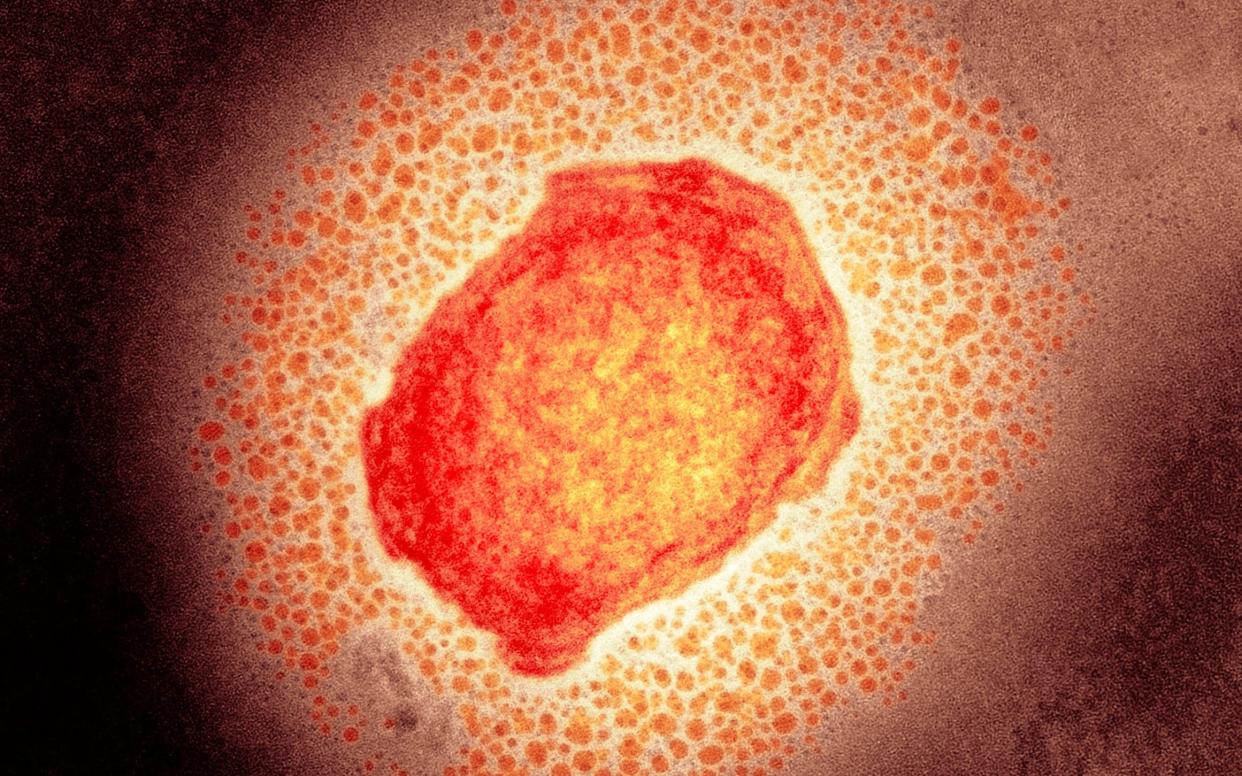Monkeypox can lead to serious neurological illness, new review shows

Monkeypox can lead to brain inflammation, depression and seizures, researchers have found.
A systematic review of cases also found that muscle aches, fatigue, headache, anxiety were all relatively common among monkeypox patients.
Across 19 studies, which included patients in Britain, more than one in 50 patients had severe complications such as seizure or brain inflammation, or encephalitis, experts found.
Dr Jonathan Rogers, of University College London’s Institute of Mental Health, who is lead author of the review, said: “We found that severe neurological complications such as encephalitis and seizures, while rare, have been seen in enough monkeypox cases to warrant concern, so our study highlights a need for further investigation.
“There is also evidence that mood disorders such as depression and anxiety are relatively common for people with monkeypox.”
Latest figures show there were 3,389 confirmed and highly probable cases of monkeypox in Britain, the vast majority in England, but cases are now beginning to slow.
The virus primarily causes skin lesions and fever, and can be fatal, although in the current outbreak, substantially fewer than one in 1,000 confirmed cases have resulted in death.
Researchers said that monkeypox may cause higher rates of mental ill health than other illnesses due to the presence of potentially disfiguring lesions, and stigma linked to transmission, which is typically from close physical or sexual contact.
Co-author Dr James Badenoch (Barts Health NHS Trust) said: “As there is still limited evidence into neurological and psychiatric symptoms in the current monkeypox outbreak, there is a need to set up coordinated surveillance for such symptoms.
“We suggest that clinicians should be watchful of psychiatric symptoms such as depression and anxiety and ensure that patients have access to psychological and psychiatric care if needed.”
The research was published online in the journal EClinical Medicine.
Long-term prognosis
The studies reviewed did not have enough long-term follow-up with patients to know whether any of the symptoms last substantially longer than the initial phase of the illness.
The researchers also caution that most cases in this review were hospitalised patients, and so the studied symptoms might not be as common in people with more mild cases.
Figures in England show that around 99 per cent of monkeypox cases are in men, and 70 per cent were in London.
The average age of those infected is 36. Nearly 40,000 vaccines doses have been administered as well and more than 2,000 have been given to healthcare workers.

 Yahoo News
Yahoo News 
